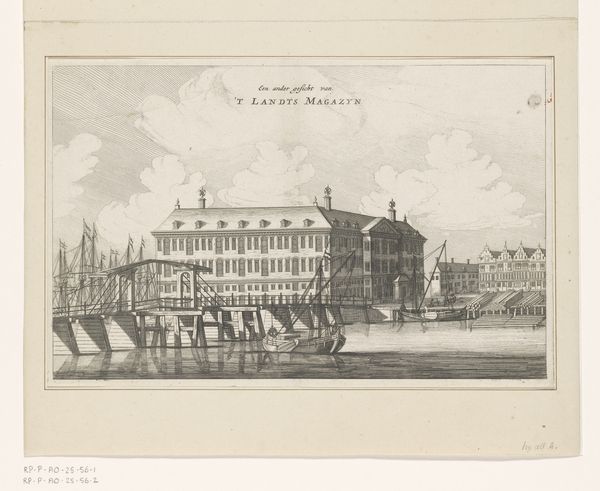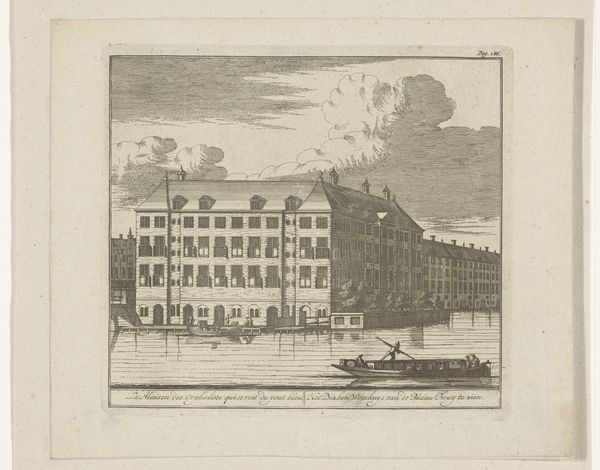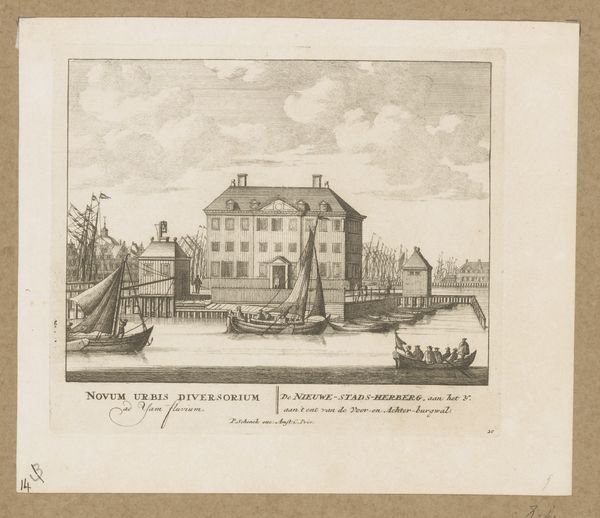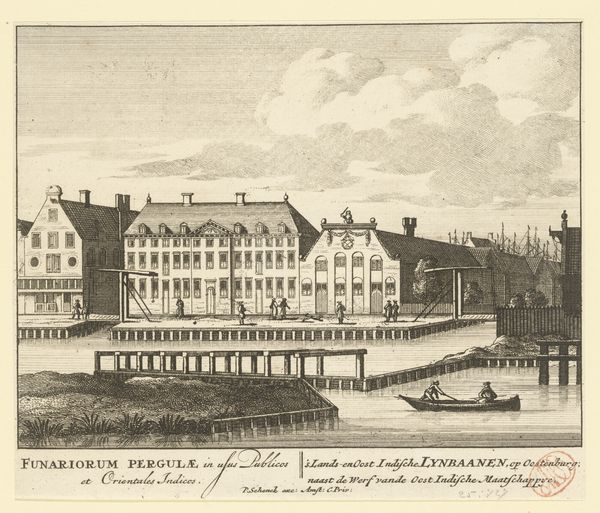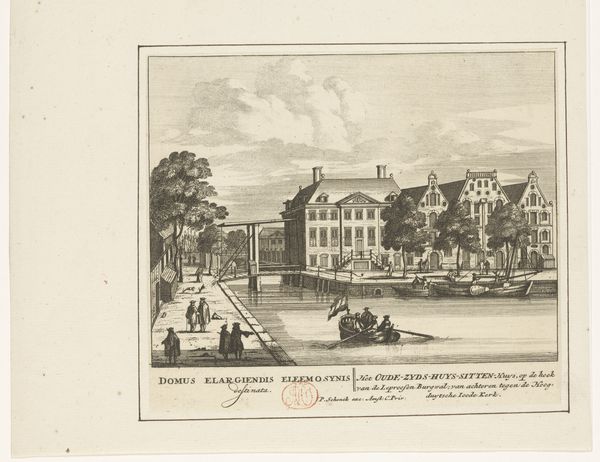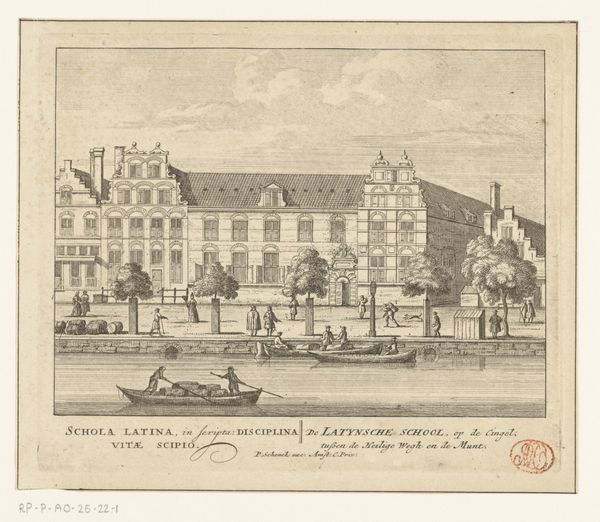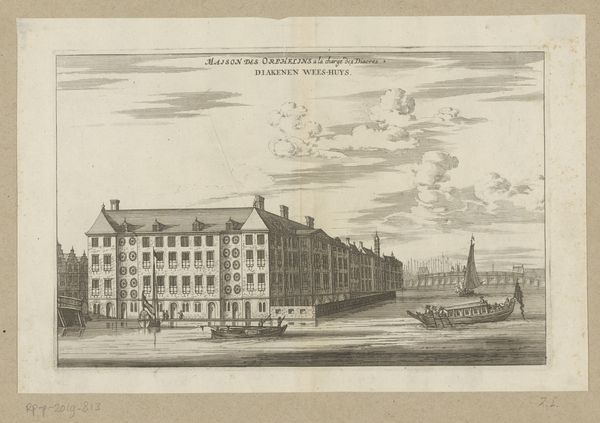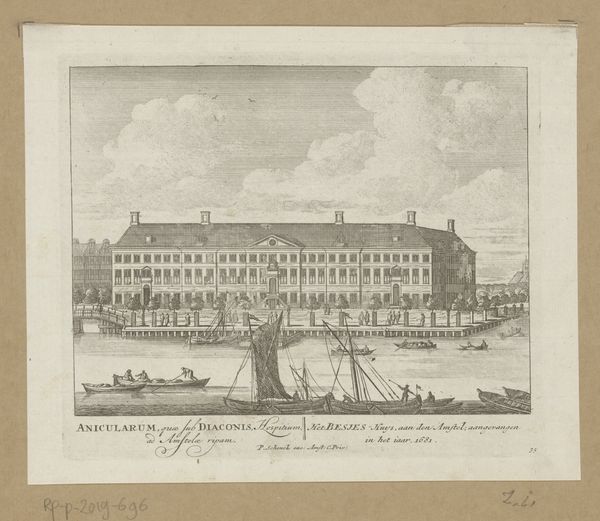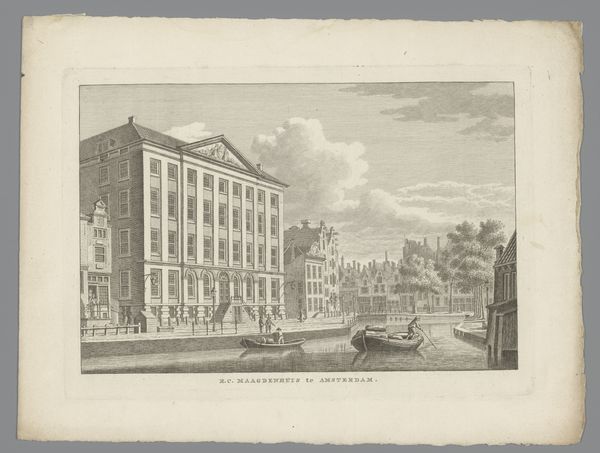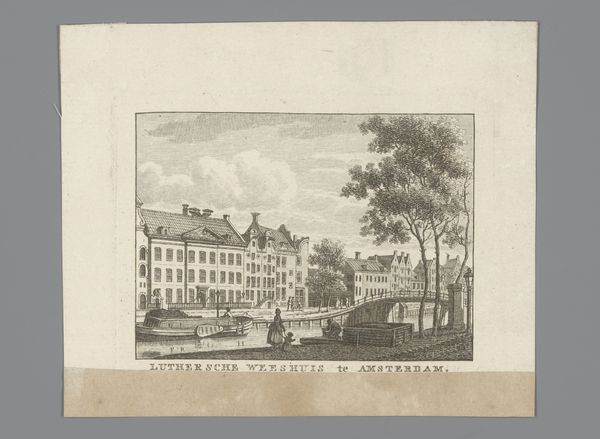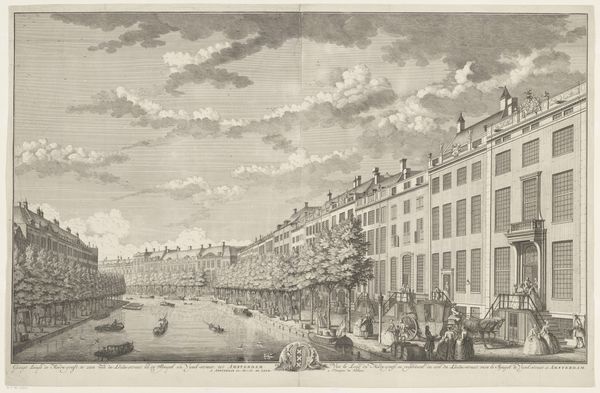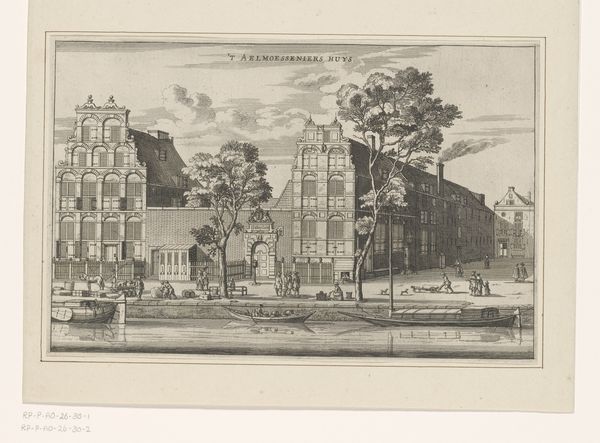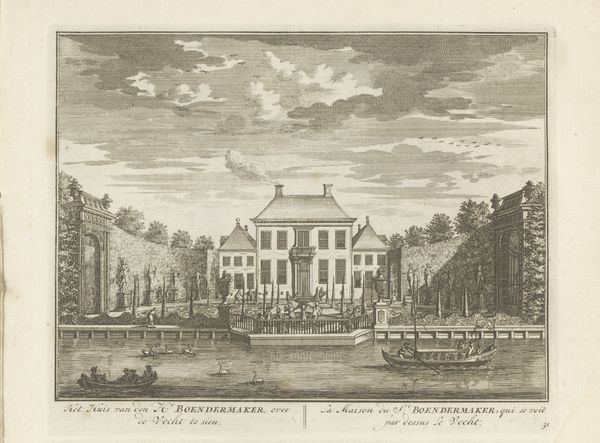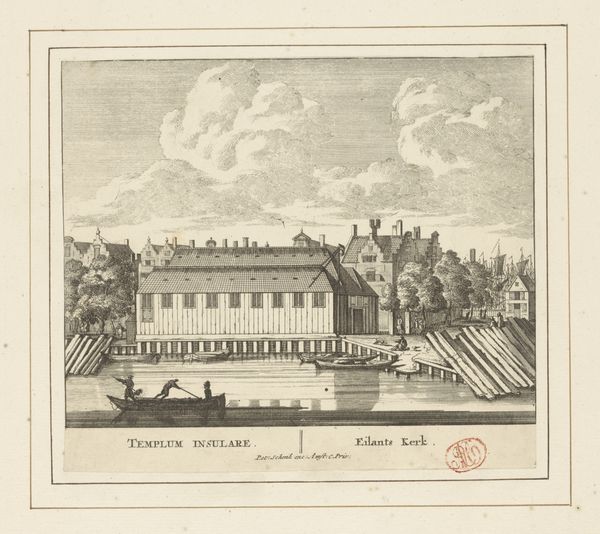
print, paper, engraving
#
dutch-golden-age
# print
#
old engraving style
#
landscape
#
paper
#
cityscape
#
engraving
Dimensions: height 166 mm, width 192 mm
Copyright: Rijks Museum: Open Domain
Editor: This is "Gezicht op het Diaconieweeshuis te Amsterdam," or "View of the Diaconieweeshuis in Amsterdam," an engraving from sometime between 1710 and 1766. It's quite detailed and feels very documentary. What do you see in this piece? Curator: I see a potent visual document of power and social structures. Consider the orphanage itself. These institutions weren't simply charitable endeavors. They were tools used to manage populations, control labor, and instill specific moral values in marginalized children. What narratives are missing from this seemingly straightforward cityscape? Editor: I hadn't really thought about it that way. It's just an architectural rendering to me. What missing narratives should I be looking for? Curator: Consider who benefits from the existence of such an institution, and who is confined within its walls. Look at the visual hierarchy - the imposing orphanage dominating the skyline, the smaller figures of people crossing the bridge, the Latin inscription reinforcing authority. The engraving subtly reinforces a social order. Also, whose stories aren't being told here? Where are the voices of the children, their experiences, their resistance, if any? Editor: So, it's not just about the building itself, but the power dynamics it represents? Curator: Precisely. Art, even seemingly neutral depictions like this, can reflect and perpetuate existing power structures. We need to look beyond the surface and ask critical questions about representation, agency, and social justice. Editor: That gives me a whole new perspective on historical artworks. I see the social critique within the aesthetic presentation. Thanks! Curator: It's crucial to continually interrogate these visual narratives to uncover the complex, often uncomfortable truths they contain.
Comments
No comments
Be the first to comment and join the conversation on the ultimate creative platform.
